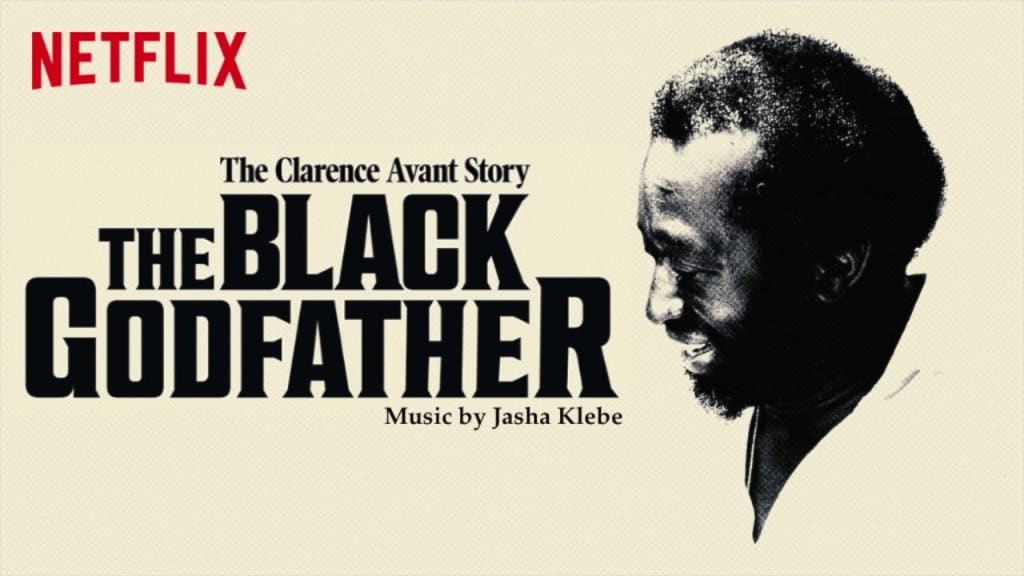The Black Godfather - review (Netflix)
Life is about numbers.

Life is about numbers. That is the mantra of the man featured in the fascinating Netflix documentary, The Black Godfather. Like the fictional character of the simpleton, Forrest Gump, who came in to contact with major figures of history in the film of the same same, Clarence Avant is a man who name and influence span several decades and takes in many famous faces. Unlike Gump, Avant was no simpleton.
By his own admission, Avant was no academic. He never went to college but had enough schooling to understand maths and life had shown him what poor was. The oldest sibling of eight, Avant fell into the music business via Joe Glaser.
Glaser was a music talent manager who started managing Louis Armstrong and went on to have a roster of jazz artist under his umbrella that included, Benny Goodman, Duke Ellington, Billie Holiday, Dave Brubeck and Sarah Vaughan. Glaser asked him to take on Vaughan. Avant told him he did not know anything about the business.
Glaser would become a mentor to Avant. Avant became the manager of Rn’B singer Little Willie John and many others followed after that. Avant was a popular person and had a talent for talking to people.
Not like a salesperson but as a person who had others wellbeing at heart. This gift made him a bit of a conduit between black talent and white businessmen who wanted to recruit the best in any field.
Avant lived through the Civil Rights movement and was very conscious of it but he was not one for the spotlight. His talent was connecting people and he did it better than anybody.
He also looked after the artist, not allowing them to get ripped off. Something he was admired for and that Glaser saw in him. He decided to send him to California with pianist Lalo Schifrin to get Schifrin into movies.
Avant did not know anything about the film business but he did what he does; he got to know everybody, meeting and befriending all the studio heads.
Schifrin went on to become one of the most successful composers in Hollywood. Avant got married and moved to California. There he met Lew Wasserman who was one of the most powerful people in Hollywood.
Avant’s ability to befriend people was called upon again when the legendary Jim Brown did not want to appear in a documentary that was being made about the Cleveland Browns football team he played for.
Clarence got him into the documentary and the movies. He started a record label and signed artist on their musical talent, surprising many when he signed white artist, especially as it was a black-owned label. He also signed Bill Withers, who at the time underwhelmed many.
Soul Train was a weekly black music show that ran from 1971 to 2006. Fronted by its creator, Don Cornelius, it challenged Dick Clark’s American Bandstand for the ears of American youth. American Bandstand was on the ABC network and Clarence worked as a consultant for ABC.
ABC created their own black music show, Soul Unlimited, to go up against Soul Train. Dick Clark asked Clarence to endorse it, even offering to pay him.
Avant refused. Avant went and saw the people at ABC and persuade them that it would be in their best interest to stop Soul Unlimited. The show was canned.
These are a few of the stories related in the documentary about the man they call The Black Godfather. There are interviews from people who know and have met him and been helped or influenced by him over a five-decade career and the man himself.
The Black Godfather has interviews from music, both young and old; Quincy Jones is a longtime friend, Sean Combs holds him in great reverence. Politics; two ex-presidents in Barack Obama and Bill Clinton, Civil Rights: Al Sharpton, film and even sport; Hank Aaron - hall of fame baseball player and icon of the twentieth century, Muhammad Ali.
Avant is the true definition of a person with a finger in every pie but not in a negative sense. Clarence was always helping people get what he felt they deserved, in a time when black was truly a detriment to advancement.
Directed by Reginald Hudlin, The Black Godfather is a positive spin documentary on a behind-the-scenes person who was a mover and shaker in American black society in the sixties, seventies, eighties and into the nineties.
With his daughter, Nicole, having a producer credit on the film, it was never going be a 'warts and all' documentary.
Clarence is portrayed throughout as the man to know if you want an introduction or you need to get a deal done. The man himself, Avant is less forthcoming with his influence on things, preferring instead to acknowledge those who have helped him moved up in life.
Avant repeats, often, that is all about the numbers; life is all about the numbers. This makes it sound as if he was only interested in money but, though he made a good living, the overall impression is that he wanted to uplift black people, to gain a level playing field. The ‘all about the numbers’ mantra seems to be something he says because he understands that it is easy for anybody to relate to.
Numbers are measurable and, for the most part, truthful. In the world that Clarence Avant straddles, numbers- the ones you can get and the ones you can offer - make all the difference. Numbers open doors and get attention. Clarence understood that and with his people skills got things done. Life is about numbers.
About the Creator
Q-ell Betton
I write stuff. A lot.






Comments
There are no comments for this story
Be the first to respond and start the conversation.